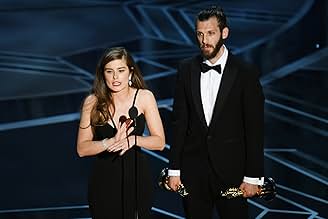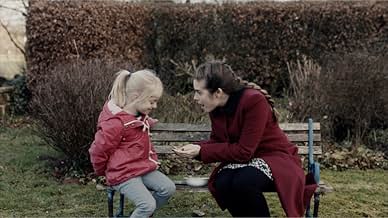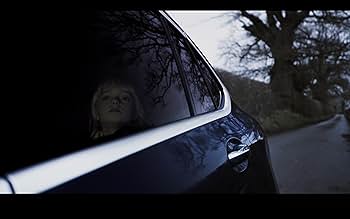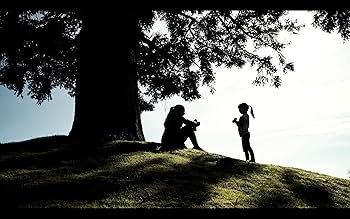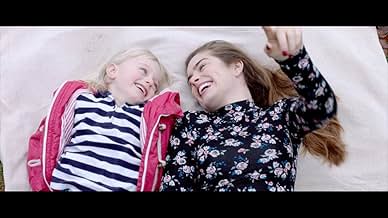IMDb-BEWERTUNG
7,7/10
3154
IHRE BEWERTUNG
Füge eine Handlung in deiner Sprache hinzuA deaf 6-year-old girl named Libby lives in a world of silence until a caring social worker teaches her to use sign language to communicate.A deaf 6-year-old girl named Libby lives in a world of silence until a caring social worker teaches her to use sign language to communicate.A deaf 6-year-old girl named Libby lives in a world of silence until a caring social worker teaches her to use sign language to communicate.
- 1 Oscar gewonnen
- 25 Gewinne & 8 Nominierungen insgesamt
Empfohlene Bewertungen
Greetings again from the darkness. Few things are more disheartening and frustrating than seeing a child neglected by their parents. When that child is deaf or hearing-impaired, the actions of such parents cross over to infuriating. Such is the topic of this gut-wrenching short film from writer Rachel Shenton and director Chris Overton.
While we usually assume parents are focused on the best interests of the child, this expertly crafted film shows us just how easy it is for everyday life to impact our best intentions. Four year old Libby (Maisie Sly) is the youngest child in a typically busy home. Work, school and activities keep the others swarming around her - leaving young Libby in an isolated state of confusion. Libby is profoundly deaf, unable to communicate with her family, and rarely even interacts. Her mother (played by Rachel Fielding) is the on-the-go type who wants her daughter to be normal, and absent-mindedly yells "Bye Libby" as she heads out for her next errand.
When social worker/tutor Joanne (writer Shenton) is hired to prepare Libby for school, it isn't long before the two are conversing through sign-language and young Libby comes alive ... playing in the park and asking for orange juice. It's a beautiful thing to watch unfold.
Early on, the film addresses that Libby "does not qualify" for a cochlear implant, which apparently was the last bit of effort her mother expended in trying to make her "normal". The film is beautifully shot and carries the strong message that with a bit of support, deaf children can be mainstreamed into schools - though I do wish some more attention had been given to cochlear implants. Ending with a couple of sobering statistics, it's refreshing to know that Ms. Shenton is an activist supporting the deaf community.
While we usually assume parents are focused on the best interests of the child, this expertly crafted film shows us just how easy it is for everyday life to impact our best intentions. Four year old Libby (Maisie Sly) is the youngest child in a typically busy home. Work, school and activities keep the others swarming around her - leaving young Libby in an isolated state of confusion. Libby is profoundly deaf, unable to communicate with her family, and rarely even interacts. Her mother (played by Rachel Fielding) is the on-the-go type who wants her daughter to be normal, and absent-mindedly yells "Bye Libby" as she heads out for her next errand.
When social worker/tutor Joanne (writer Shenton) is hired to prepare Libby for school, it isn't long before the two are conversing through sign-language and young Libby comes alive ... playing in the park and asking for orange juice. It's a beautiful thing to watch unfold.
Early on, the film addresses that Libby "does not qualify" for a cochlear implant, which apparently was the last bit of effort her mother expended in trying to make her "normal". The film is beautifully shot and carries the strong message that with a bit of support, deaf children can be mainstreamed into schools - though I do wish some more attention had been given to cochlear implants. Ending with a couple of sobering statistics, it's refreshing to know that Ms. Shenton is an activist supporting the deaf community.
The mother was deaf in ways of her own, wasn't she? A touching story, beautiful cinematography, and a lovely pair of actors in the social worker and deaf child (Rachel Shenton and Maisie Sly), make this a good short, even if it is a little heavy-handed.
I watched this in a sign language class at my college. I've always wanted to communicate well with deaf people and this film shows why that is so important.
The feelings of loneliness expressed by the young actress are true to life. Many deaf ones cannot communicate with the general public, not because they don't want to, but because no one understands them. This film captures that and provides a powerful message why we need to try harder to include the deaf community by trying to communicate with them. The Silent Child is an amazing and emotional film that needs to be seen. It's realism is outstanding and it's message compelling. Thoroughly deserved the Oscar.
The feelings of loneliness expressed by the young actress are true to life. Many deaf ones cannot communicate with the general public, not because they don't want to, but because no one understands them. This film captures that and provides a powerful message why we need to try harder to include the deaf community by trying to communicate with them. The Silent Child is an amazing and emotional film that needs to be seen. It's realism is outstanding and it's message compelling. Thoroughly deserved the Oscar.
"The Silent Child," Chris Overton, Rachel Shenton - A beautiful film with an important message about how deaf children need support and assistance in life and in school in order to develop fully to their potential, and the serious negative consequences that lack of support can have. I found this film to be quite touching. Beautifully directed, acting was phenomenal. Rachel Shenton should be a star. This is my personal pick for the live-action short film Oscar.
How often do you sit down and watch something, agree it's fundamentally incredible say it deserves to win an Oscar and it never does. Fortunately for this superb presentation justice has been served. The film itself is sensitive, thought provoking, and genuinely gives you a reasoned insight into what life must be like for Libby, the frustrations and struggles, but also the truth that the human spirit seems able to overcome anything. A heart breaking watch for most of us, but such an important message shared. Young Maisie Sly is absolutely incredible, how proud must her loved ones be of her. Wonderful.
Wusstest du schon
- WissenswertesRachael Shenton signed along with her Academy Award acceptance speech (using British Sign Language BSL) after making a promise to her co-star Maisie Sly, that she would do so if they won.
- VerbindungenFeatured in The Oscar Nominated Short Films 2018: Live Action (2018)
Top-Auswahl
Melde dich zum Bewerten an und greife auf die Watchlist für personalisierte Empfehlungen zu.
Details
- Erscheinungsdatum
- Herkunftsland
- Offizielle Standorte
- Sprachen
- Auch bekannt als
- La niña silenciosa
- Drehorte
- Produktionsfirmen
- Weitere beteiligte Unternehmen bei IMDbPro anzeigen
Box Office
- Budget
- 10.000 £ (geschätzt)
- Laufzeit20 Minuten
- Farbe
- Seitenverhältnis
- 2.35 : 1
Zu dieser Seite beitragen
Bearbeitung vorschlagen oder fehlenden Inhalt hinzufügen

Oberste Lücke
By what name was The Silent Child (2017) officially released in Canada in English?
Antwort
